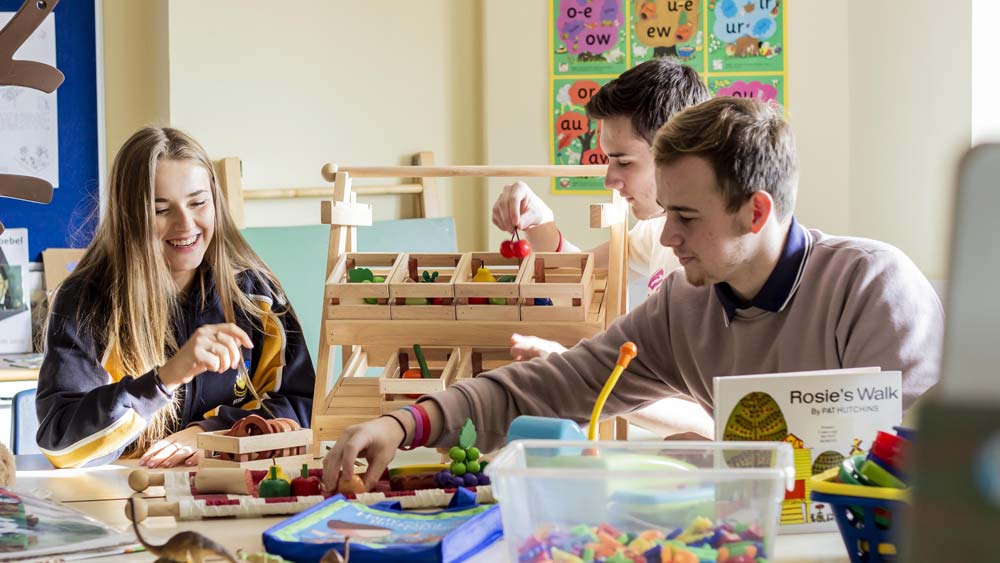
BEd Secondary Education with Science and Maths (with QTS)
Become a specialist science and mathematics teacher at secondary level. Combine an honours degree and Qualified Teacher Status (QTS) so you can begin your career immediately following the three year course.


Top 5 in England for Education
The Guardian University Guide 2024

Apply now for this course

Keep in touch with this course
Entry requirements
Three A-levels at grades BBC or above
Or BTEC triple grades DMM or above
And GCSE English Language and Maths at grade 4 or grade C or above
Or T level M
A Maths and/or Science post 16 qualification
We are committed to safeguarding and promoting the welfare of children and trainees. All trainees are expected to share this commitment and demonstrate consistently high standards of personal and professional conduct.
We will accept 2 AS levels in lieu of one A level but must be accompanied by 2 A Levels or BTECs (General Studies is excluded).
Full entry requirements
A DBS (Disclosure and Barring Service) check is required.
We have a responsibility to ensure that trainees have the health and physical capacity to teach. Candidates must meet the Secretary of State’s requirements for physical and mental fitness to teach as detailed in ‘Fit to Teach’ by completing an on-line medical questionnaire.
The Skills tests no longer exist as an entry requirement however, all teachers are expected to be competent in fundamental English and Maths. We will be assuring that trainees have these skills either during the selection process, or later during the training programme.
Candidates will be invited to an interview where they will be asked to deliver a pre-prepared presentation to a small group followed by a formal interview. Interviews will be conducted by University Tutors but may also include representatives from schools.
Please note that Level 2 Key Skills in Application of Numbers and Communication or Certificates in Adult Literacy or Numeracy, are not sufficient to meet the entry requirements to a BEd programme.
Any questions?
Contact Tara Godber, our Applicant Support Coordinator, if you have any questions. Email applicantsupport@marjon.ac.uk and Tara will get back to you.
Course Summary
This BEd (Hons) Secondary Education with Sciences and Maths (with QTS) will provide you with a direct route to Qualified Teacher Status (QTS) and an opportunity to explore your favourite subject specialism in depth. In just three years you'll be ready to join the highly rewarding career of teaching as a science and maths teacher.
A recent poll of 14–18-year-olds by the British Science Association found that 59% are more tempted by careers in science than they were prior to the pandemic. Celebrity scientist Professor Brian Cox has predicted that the pandemic will create “a new generation of scientists”. Be part of this and help create the new generation of scientists and mathematicians ready to innovatively tackle the challenges of the future by becoming a teacher.
Throughout the course, you will engage in learning around our three key themes:
- The professional role of the developing teacher,
- Development of teaching and learning, and
- Curriculum and specialisms.
You will learn to be a specialist science and maths teacher and will undertake research into a self-selected area of specialism. Your learning experiences will be varied, including the exploration of topics through lectures, practical workshops, seminars, school-based training, and fieldwork activities.
You will develop a wide range of subject knowledge - including biological, physical, and chemical sciences and real-world maths - to help you to encourage all pupils to become engaged with and curious about the world around them. You'll gain knowledge of your pupils’ learning and development along with the professional attributes you'll need to become a great teacher. You'll develop a deep knowledge of your subject and the ability to pass your passion for sciences and maths to your pupils. Innovative and practical teaching practices will enable you to instil curiosity and teach the application of science and maths to your pupils, promoting a life-long love of learning.
Through practice-based modules conducted within a variety of school settings, you will learn and be able to observe education theory in action. By participating in a range of placements at our partnership schools and in other educational settings, trainees enjoy ample contact with qualified teachers and pupils. During these modules, you will learn from expert practitioners and engage with current educational issues and debates
In parallel with in-depth studies of the latest pedagogical theories and policies, along with self-led independent research, you’ll also get the essential practice required to earn QTS.
Additionally, all BEd students can join the Primary Science Enhancement Award scheme (PSEA). The PSEA, developed by the Primary Science Teaching Trust, gives trainee teachers the opportunity to increase their understanding and experience of teaching and learning in primary science. In the recent pilot, it was found that trainees reported increased confidence to teach science, and a greater awareness of where to find support for this.
Why this course at Marjon?
Keep your subject options open as your start your journey to become a teacher
Marjon education graduates are the highest earning teachers in the South West and Wales (DFE LEO, 2018)
Over 95% of our secondary trained teachers are employed in teaching jobs - above the sector average
We provide excellent role models in initial teacher training, promoting the involvement of outstanding teachers and specialist leaders in working with our trainees
Superb links with our partnership schools throughout the South West, London and overseas
Long and established history of teacher education – we've been training teachers for over 180 years
Modules for this course
Course Snapshot
“ “The BEd Secondary Education with Science and Maths brings together practice, policy, and research. You'll explore current curriculum topics through a wider professional lens. You'll undertake independent research as well as subject specific studies focussed on the theory and professional practice of teaching science and maths, getting pupils to think about how science and maths can be used to provide solutions to today's challenges.” ”
1st Year
Becoming a teacher
Science: the art of systematic study
Making maths meaningful
Learning in a digital world
Chemical and biological sciences
Physical and mathematical sciences
2nd Year
Curriculum and pedagogy
Biological sciences - the study of life
Chemical science - the substance of matter
Physical sciences - 'nothing happens until something moves'
Promoting creativity through mathematics
3rd Year
Current issues in education
Secondary education, schools, learners and teachers
Digging deeper - mastery and learning
Research in education
This course is perfect if you’re curious about
How to integrate technical, practical, problem solving learning in the classroom
How to engage inquisitive students who love to understand about life, the universe and everything
How science and maths can be used to provide solutions to today’s challenges
How teachers develop a rapport with children and channel their interest
How to understand how things work or predict how they might change
How pupils learn in a digital world
What might you become?
BEd (Hons) Secondary Education with Sciences and Maths (with QTS) is fully focused on enabling you to become a teacher of the sciences and maths in a secondary school. Our students quickly find teaching positions due to our excellent reputation, strong links with partner schools and large numbers of Marjon alumni in senior positions, who respect the high quality of our training.
Science and Maths teachers are in high demand in secondary schools. On completion of this BEd (Hons) Secondary Education with Sciences and Maths (with QTS) you will be a fully qualified teacher and you may also choose to specialise in one of these subjects, or do an enhancement in Primary or Special Education, to enhance your employability as an early career teacher (ECT).
Over 90% of our trainees go on to secure teaching posts locally, nationally or abroad which is above national rate. Others go on to further postgraduate study or research posts within Higher Education. Some of our trainees have gone on to establish themselves as freelance specialist teachers in their field of expertise or work in industry.
How you’ll be taught and assessed?
How will you be taught?
Collaborative learning, critical reflection and a strong culture of support underpin the BEd Secondary Education with Science and Maths (with QTS) at Plymouth Marjon University, and trainees will enjoy a stimulating and effective learning environment from start to finish. The expertise of our departmental staff are complimented by visiting teaching practitioners and lecturers from our extensive partnership network.
You will have school-based training in each year of the course. In the professional year, this will include a minimum of 120 days in school in two block placements. Teaching methods include lectures, seminars, lab work, fieldwork, workshops, conferences, tutorials, independent study or research, and school-based training.
How will you be assessed?
Assessment relates to the development of your teaching practice in schools. It includes portfolios, presentations, essays, blogs, portfolios, exams, practical skills assessment, teaching practice and a final research project.
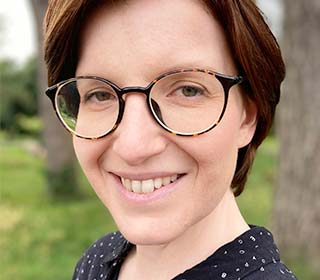
Having spent 12 years teaching mathematics at secondary level - both domestically and internationally - including as the Head of Mathematics at an inner-London academy, Rosie has a wealth of classroom experience from a wide variety of contexts.
Fees and funding
Fees UK students: £9,250 per annum
Fees for International students: £14,600 per annum
This fee covers your tuition and access to course-specific equipment and facilities, as well associated services including access to the library, study skills support, IT support, student support and wellbeing services and membership of the Student Union. There may be additional costs by course.
Funding available for this course
Our Student Funding Advisors offer confidential and impartial advice about your funding options.
Learn moreLecturers
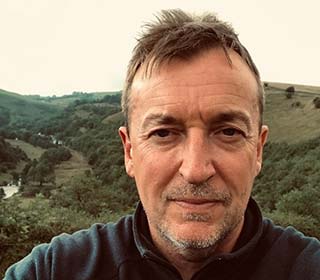
Jonathan’s career as a history teacher has spanned over 25 years, working in secondary schools in Sussex, Suffolk and Cornwall. Previously, he has worked for Cornwall LEA as an Advanced Skills Teacher, supporting history departments, NQTs and recent entrants to the teaching profession across the county. He is a Teacher Fellow of the Historical Association.
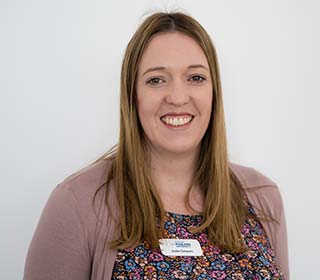
Jodie teaches on our teacher training courses, specialising in primary science as well as supporting students on placement. She is the Head of ITT and she also supports primary colleagues across the city and beyond through her work with Plymouth Science.
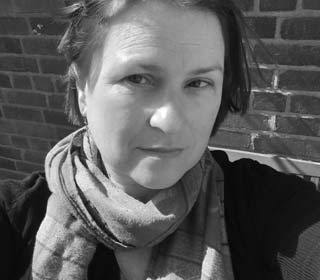
Claire is Programme lead for the Secondary PGCEs and Schools Direct. Claire's specialist subject is English and before joining Marjon she worked in various secondary schools in Exeter as well for South West Teacher Training. Her research interests are reflective practice, teacher identity and retention.
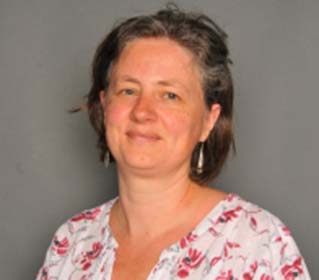
Tara specialises in teaching primary mathematics and is also currently involved with an international project about making maths more accessible to primary aged children and their parents.
Frequently asked questions
Q1 Will I be able to teach in a school after this course?
Q2 How long will it take until I can get a teaching job?
Q3 Do I need to specialise in all three strands of science?
Q4 Who will this course qualify me to teach?
Q5 Do you have to complete a PGCE to be a teacher?
Q6 Do I need to have completed an undergraduate degree first?
More information
For tips about every stage of the teacher training journey, from making your application shine to securing your first teaching role, see the how to get into teaching guide.
Apply now for this course
Find out more about studying BEd Secondary Education with Science and Maths (with QTS) at Marjon

